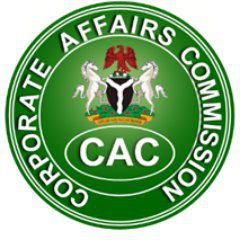With its establishment in 1990 by the Companies and Allied Matters Act during the regime of former military President Ibrahim Badamosi Babangida, the Corporate Affairs Commission (CAC) is now the first point of call for business owners who want to give their enterprise or limited liability company a legal backing.
We’ll tell you more about the practicable functions of Nigeria’s one of the most powerful agencies when it comes to business registration and filing of company annual returns as it’s clearly explained in our guide at: https://infomediang.com/annual-returns-with-cac-nigeria
Origin of Corporate Affairs Commission
There had been business registration in Nigeria even during the first republic. The body saddled with the responsibility at the time was called the Company Registry.
It was first under the supervision of the Federal Ministry of Commerce and Tourism. But its ineffectiveness prompted the establishment of the Corporate Affairs Commission which is now of the agencies of the Ministry of Industry, Trade and Investment
Its headquarters:
The Act establishing the CAC says the headquarters shall be at the Federal Capital Territory (FCT), Abuja. This is because IBB had already concluded plans to move the FCT from Lagos to Abuja at the time of the act creating the CAC.
Remember, the FCT moved from Lagos to Abuja on December 12, 1991, though the plan started in the 1980s.
The agency now has its permanent headquarters located at Plot 420, Tigris Crescent, Off Aguiyi Ironsi Street, Maitama, Abuja.
With all the above preamble, it’s important to completely dissect the functions of Nigeria’s agency that certifies the establishment and registration of business names in Nigeria.
As outlined in CAMA 2020 Part A, below is the list of legal responsibilities and the services rendered by CAC:
1) Regulation of businesses in Nigeria
2) Supervision of the formation of companies to ensure the stipulated laws are followed as clearly stated in the Act establishing the commission
3) Incorporation of businesses of section 541 of the Act establishing the commission
4) Registration and management, and winding up of companies under or pursuant to the Act of its establishment.
5) Establish and maintain a company’s registry and offices in all the States of the Federation
6) Arrange or conduct an investigation into the affairs of any company where the interests of the shareholders and the public so demand
7) Legal power to perform other functions as may be specified by any Act or enactment
8) To revoke any business name that has been found to be illegal or hugely violated its laws. The commission exercised this power in a public notice it issued on June 6, 2020, where it states thus:
This is to inform the general public that the Certificate of Registration No. IT 144918 issued inadvertently to the Trustees of OHANAEZE NDIGBO GENERAL ASSEMBLY has been withdrawn by the Corporate Affairs Commission.
The Trustees of the Association have been advised to return the said certificate to the Commission as same has been canceled. The conditions for the issuance of the certificate have not been fully fulfilled.
8) To delist any business name in its database which fails to file annual returns. The commission exercised this function on October 19, 2019, when it delisted over 40, 000 registered businesses and companies from its database for non-performance, according to Nairametrics in a report
9) Another service rendered by the CAC is to vet the registration of a proposed business name to ensure that the same name has not been registered.
If a name had already been registered, the new applicant would be mandated to pick another name.
10) To issue a certificate that gives a business or corporation a legal identity. It does this effectively by going digital, meaning businesses can now register online, and print their E-certificate from their dashboard within seven business working days.
And to impose penalties on any company or business that fails to abide by the guidelines of the commission.
Types of services
CAC services can be categorized into five different types, they include:
- Business Name
- Public Limited Company (PLC)
- Private Limited Company (LTD)
- Unlimited Companies, and
- Companies limited by guarantee
Final thought:
Today, the determination of business owners to access government loans and apply for government contracts, to obtain credit facilities from financial institutions has spurred Nigerians to know the importance of registering their businesses.
References:
placng.org/lawsofnigeria/laws/C20.pdf


